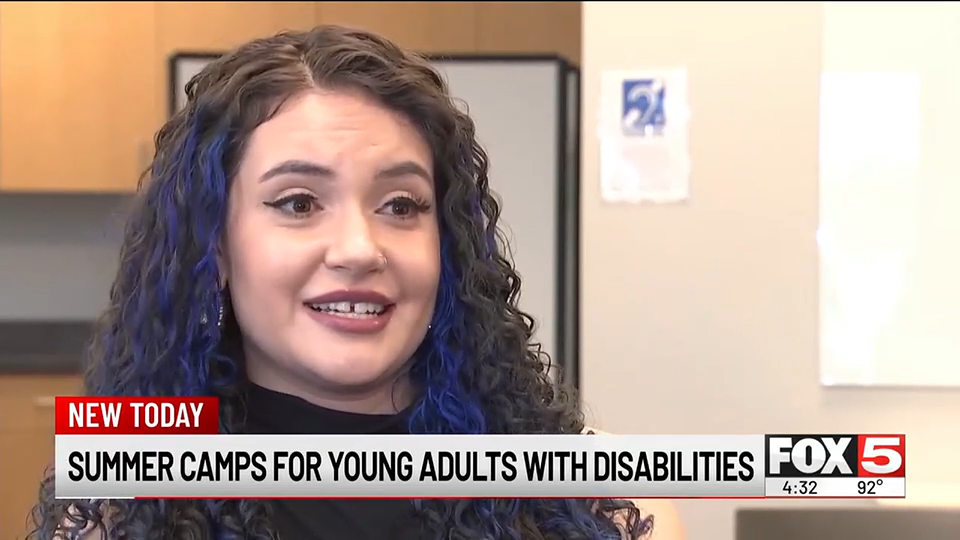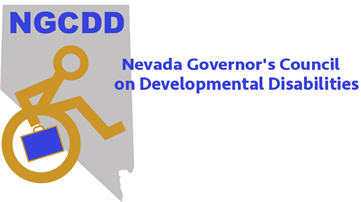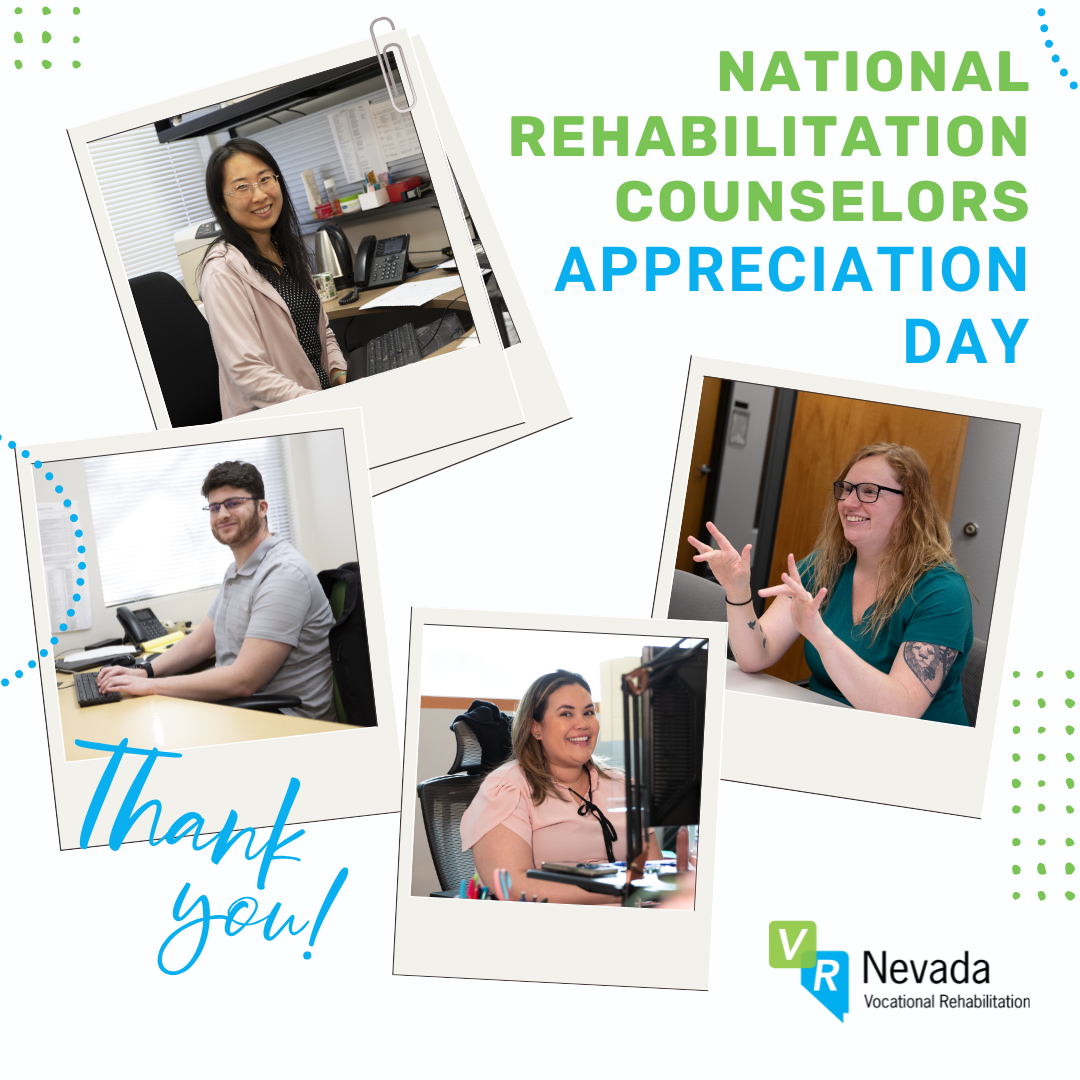
1. How long have you been with Vocational Rehabilitation?
Almost six years. (Five years and ten months)
2. What is your title?
Vocational Rehabilitation Counselor III
3. In 30 words or less, what do you do?
I meet with clients face-to-face to discuss and identify their challenges to obtaining and maintaining employment. Those challenges may be a physical, mental, or emotional disability. My job is to then provide accurate and comprehensive information, support and assessment options to identify their unique strengths and interests, plausible educational and vocational options, and help them devise a feasible plan for removing any barriers to employment. I strive to assist them in achieving their career goals and becoming employed in the field that matches their aptitude and interests and is of their informed choice.
4. What types of clients do you serve?
We serve a very clinically diverse client population. We serve people with physical, mental, and emotional disabilities in a wide age-range and those in a broad socioeconomic spectrum.
5. How does what you do help your clients?
As VR Counselors we strive to instill a sense of can-do attitude in our clients – many of whom come to us feeling demoralized and hopeless to initiate change in their lives. Through providing comprehensive support, relevant and accurate information, respect for each individual, reasonable and attainable educational and vocational options, and assisting with developing a clear and feasible Plan for achieving realistic goals – most of our clients become excited and optimistic about their career prospects and/or employment opportunities for the first time in years. Through the amazing and compendious Services offered by DETR, clients typically feel supported and emboldened to induct positive actions.
6. Can you tell us about a success story that has been especially meaningful?
While working as the sole VR Counselor at a local Community College I worked with a client who had an extremely rare neurological disease for which there is no treatment or cure and has a terrible prognosis: tragically he will have a truncated lifespan. However in the time he does have here he wanted to make the most of it and live his life as if he had a normal life expectancy. In discussing his vocational options, he told me he greatly respected his father who worked as an engineer. So this young man chose to study engineering to emulate his beloved dad. This DETR client was intelligent, was a very good student in school, and had the proven aptitude and determination to become an engineer. Therefore I helped this client devise a Plan to achieve his goal. I offered every possible support in every way I could to accommodate his many disabilities and provide the assistance he needed to attend college classes. He worked hard, excelled academically and ended up graduating from college with his Associate’s degree in engineering.
7. What do you like most about your job?
I love interviewing/triaging new clients. Everyone is so unique and fascinating to me. I love getting to know clients and helping them identify their strengths and interests. I then love to guide them in thinking creatively about attainable career options and devising a realistic plan to help them achieve their employment and/or career goals.
8. What do you like to do when you aren’t at work?
I have always been a voracious reader of psychology, medicine, and the sciences. I also spend as much time as possible out in nature and enjoy bird watching and nature studies alone or with close friends. I garden and draw and paint nature, landscapes, animals and birds. I make miniatures using mixed mediums. I love music and am teaching myself to play the acoustic guitar.
9. Anything else you’d like for us to know?
I have always loved working with clients here at DETR and feel extremely fortunate to have had this wonderful learning experience. I am actually a license-eligible Clinical Psychologist with a special interest in psychological and neurological testing. I became a client myself here at DETR due to a botched spinal fusion surgery with residual neurological problems including chronic pain with my back and both legs and feet. But my time as a client serendipitously led to becoming an employee. So I can empathize with our clients as I know what it feels like to have a permanent disability, to have limitations with regards to employment and many other things, and to be on the other side of the desk, all of which I believe has been advantageous in my work as a DETR employee.
Working at DETR has been a great additional learning experience to my formal education and my former work experiences in Inpatient Psychiatry. And although I come from an entirely different field, my clinical psychology education and work experiences have proven to be beneficial in working with DETR clients.
In this context, it is both an honor and privilege to work with people with disabilities and assist them with accomplishing their goals. I feel very blessed and grateful to be working with DETR clients.



